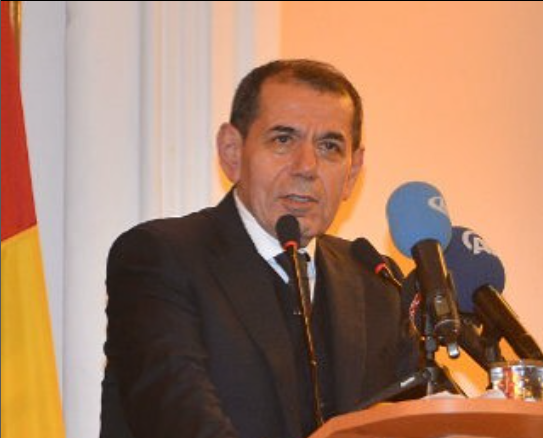Dursun Özbek has quietly but steadily solidified his position as one of the most important businessmen in Turkey. Even though his name is often heard throughout the Galatasaray stadium, his empire was painstakingly constructed behind the doors of high-stakes boardrooms and in the shimmering lobbies of upscale hotels. While attending Istanbul Technical University, Özbek, who was born in 1949 in Giresun, started out small, selling auto parts from a six-square-meter shop with his brother. Decades later, his success is still largely attributed to his resourcefulness.
By utilizing his mechanical engineering degree, Özbek not only gained a competitive advantage but also established a business strategy that worked incredibly well. His 1988 foray into Turkey’s tourism industry, where he established the Nippon and Point Hotel chains in Istanbul, is especially noteworthy. These hotels, which are now very well-liked by business leaders and tourists from around the world, prepared the way for his entry into Antalya with the Kimeros and Mabiche brands. Each property was designed to meet the increasing demand for hospitality that combines Turkish identity with international standards, while also being incredibly durable in the marketplace.
| Category | Information |
|---|---|
| Full Name | Dursun Özbek |
| Date of Birth | March 25, 1949 |
| Birthplace | Giresun, Türkiye |
| Nationality | Turkish |
| Height | 1.61 m |
| Education | Galatasaray High School, Istanbul Technical University (Mechanical Eng.) |
| Languages | French, English |
| Marital Status | Married |
| Children | Two |
| Main Profession | Entrepreneur, Businessman, Football Executive |
| Current Roles | President of Galatasaray S.K., Chairman of Clubs Union Foundation |
| Known For | Nippon & Point Hotel Chains, Tourism Sector, Galatasaray Presidency |
| Estimated Net Worth | $300 Million |
| Key Assets | Nippon, Point, Kimeros, Mabiche Hotels; Galatasaray influence |
| Reference Source |
Özbek’s hotel empire uses a surprisingly low-cost luxury business model. Although his properties have high-end amenities and design, their strategic pricing has made them highly adaptable to both business and leisure travelers. He has greatly increased the number of rooms, employees, and satellite services over the last ten years, making his hospitality footprint one of the most well-known in Turkey. He has strengthened his position as a pioneer in Turkish tourism and further optimized revenue streams through strategic alliances with foreign companies and travel agencies.
However, the presidency of Galatasaray Sports Club, one of the most illustrious football organizations in Turkey, has taken over his responsibilities in recent years. Özbek, who was re-elected as club president, brought the vision and rigor of a businessman to a role that was frequently entangled in legacy disputes and politics. Notably, he asserted that Galatasaray would receive a $9.5 billion financial flow, a claim that caused both skepticism and optimism among analysts and supporters. According to his most recent financial disclosures, his administration has so far invested about $35 million in the club, greatly increasing its operational and infrastructure capabilities.
His ability to balance hospitality business and sports management is indicative of a larger trend in Turkish business culture: the rise of multihyphenate executives. Similar to Nasser Al-Khelaifi’s management of PSG or Roman Abramovich during Chelsea’s prime, Özbek represents a fusion of public athletic leadership and private investment ambition. He is able to command attention in two very different but culturally relevant industries—football and tourism—because of this duality.
Özbek’s upward trajectory is consistent, which sets him apart from many of his contemporaries. He has anchored himself in core sectors with potential for sustainable growth, whereas many entrepreneurs switch industries in pursuit of trends. Even though his investments are varied, they are all based in sectors where he can keep operational control, such as real estate, club management, and upscale hotels. It is widely believed that he has substantial assets in both domestic and foreign markets, particularly in euro-hedged real estate and tourism bonds, despite the fact that he has not fully disclosed the details of his securities portfolio.
Özbek has developed a financial structure that is especially inventive in its resilience to economic downturns by fusing long-term planning with short-term execution. Due in part to early investments in digital booking platforms and accommodating guest policies, his hotel group was able to maintain operations during the pandemic at a significantly lower loss than many other hospitality brands. His fortune, which is estimated to be $300 million, has remained stable in part due to his ability to predict and adjust.
Galatasaray views Özbek’s presidency as a financial recalibration rather than merely a managerial position. His management style, which combines astute economics with aggressive sporting goals, is frequently compared by supporters and analysts to that of Florentino Pérez at Real Madrid. According to reports, Özbek’s investment strategy for the team includes not only establishing domestic dominance but also creating a globally competitive brand, which includes reestablishing relationships in Europe and expanding commercially in Asia.
It is anticipated that Özbek’s influence will grow even more in the upcoming years. His portfolio might soon become more significant on a national level due to reports of more hotel construction in the Aegean region and possible partnerships with Middle Eastern investors. He is seen by Türkiye as a symbol of a generation of businesspeople who started out small and ascended via prudent risk-taking and unwavering perseverance. Through a career characterized by turning small businesses into successful ones, Özbek’s story reflects the goals of many Turkish business leaders aiming for international recognition.


